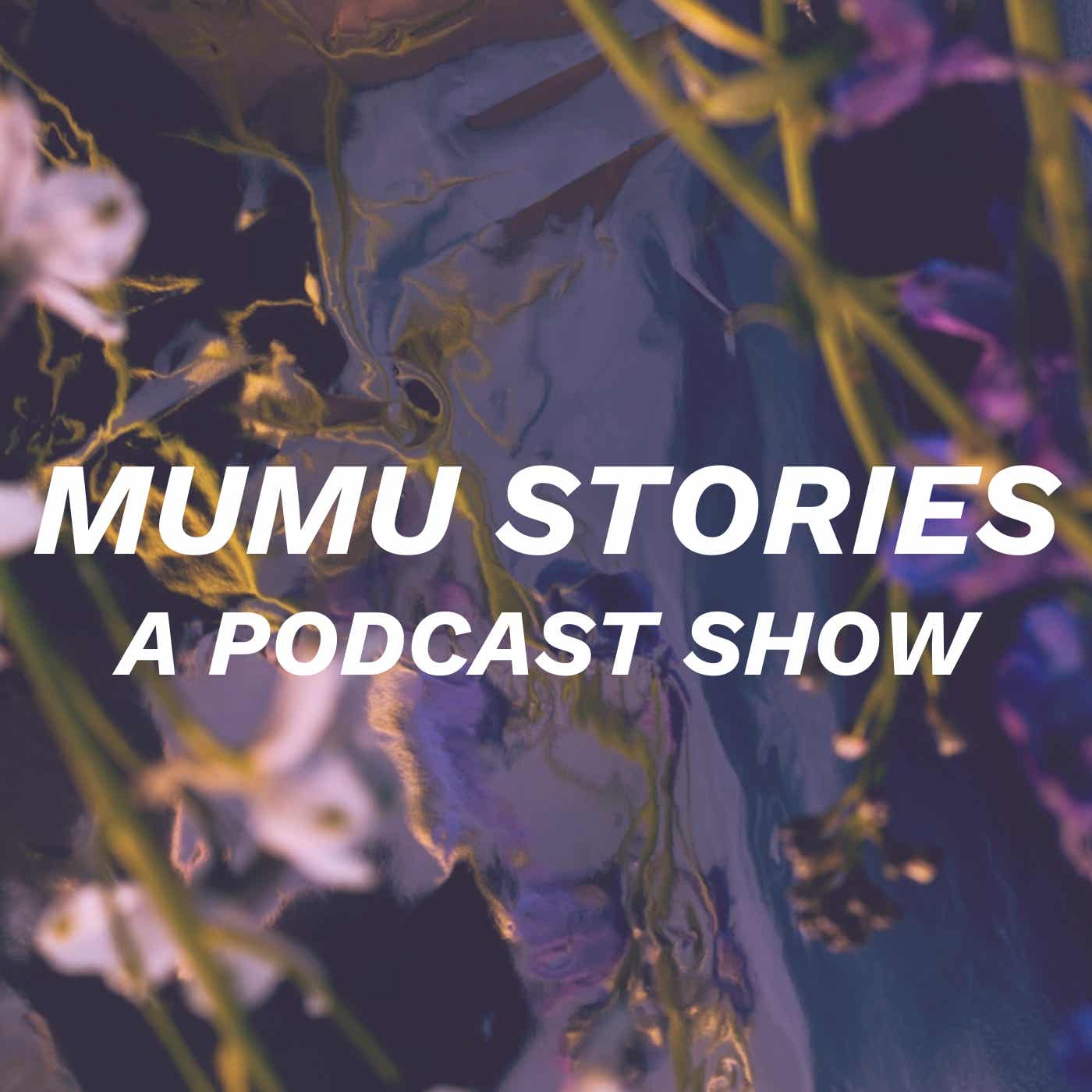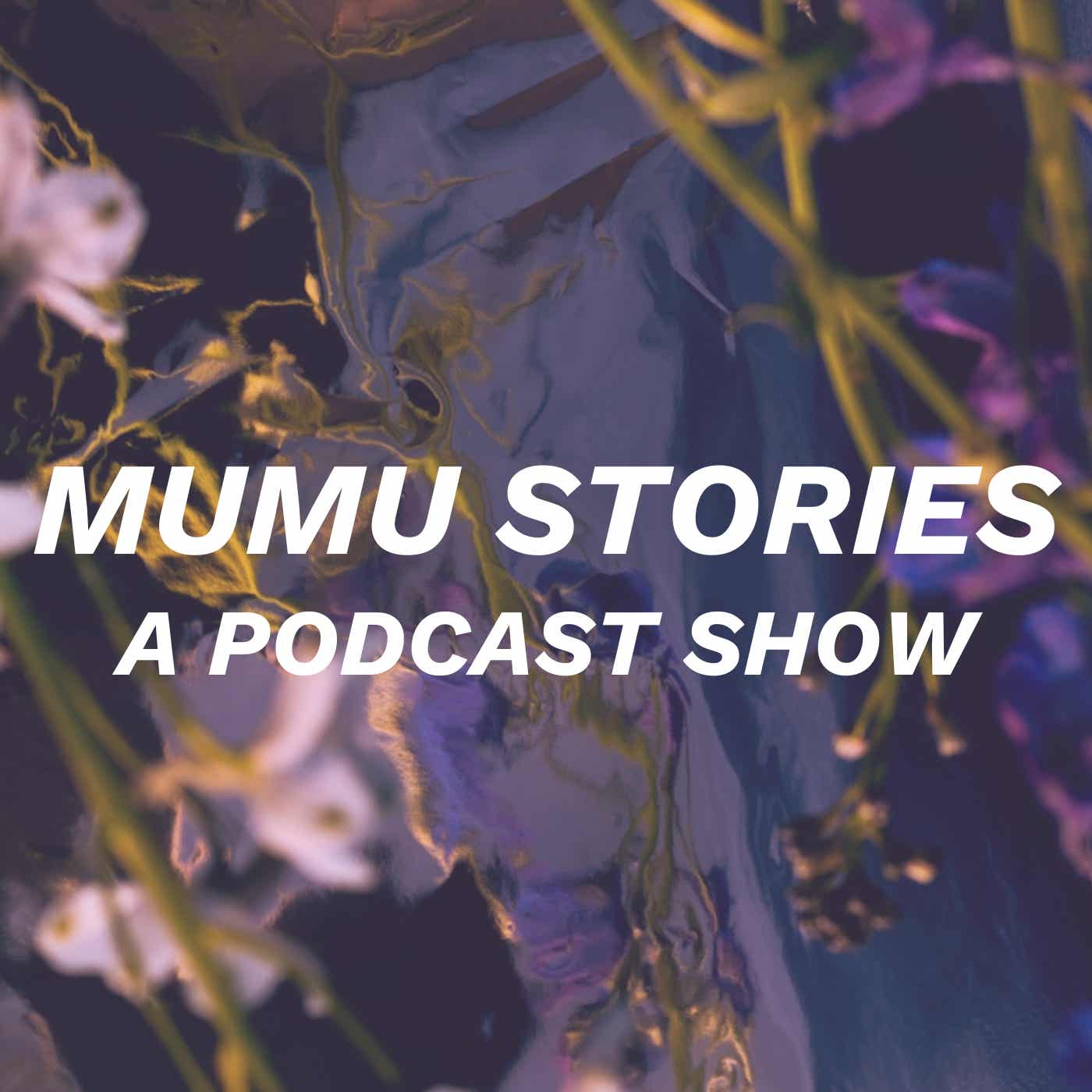Mumu Stories

Mumu Stories
Podcast Description
A podcast that explores family history, belief, and the stories that shape us. mariannemanzler.substack.com
Podcast Insights
Content Themes
The podcast delves into themes of creativity, health, and memory, focusing on stories from BIPOC, LGBTQIA+, and marginalized communities, with episodes highlighting personal journeys such as the impact of cultural heritage on mental health and exploring artistic expressions of identity.

A podcast that amplifies the voices of BIPOC artists, creators, and entrepreneurs in Minneapolis & beyond.
This activity is made possible by the voters of Minnesota through a grant from the Minnesota State Arts Board, thanks to a legislative appropriation from the Arts and Cultural Heritage Fund.
This podcast interview with writer, educator, blogger, and health advocate Rachel Werner is a special one, featuring a special conversation between her and her daughter, Phoebe, as they reach across time and generation and experience to have a conversation and connect on a deeper level. I love the support they show for one another’s goals and artistic ambitions. I love the generosity that swells between question and answer, as they describe one another: resilient, wise, tenacious. It’s the kind of conversation I wish all mothers and daughters could have with one another, as they discuss lessons learned, relationships, hopes and dreams, the most beautiful places to visit. We used the “Parents are Humans” cards to help facilitate this conversation. These cards are bilingual, with my version containing English on one side and Tagalog on the other (I used these with my own maternal grandmother bridge the language barrier and tell the stories that shaped her and our family). This is part of my budding project to document the small & supposedly “mundane” conversations, as well as ones that circle bigger topics, in the hopes of creating a more nuanced view of what care, community, and home can look like.
Rachel’s home is nestled in a quiet neighborhood in St. Paul. She shows me around her home, from the plants stretching upward in the corners to her office in the back, where she writes and creates. Both her and her daughter find their own ways to grow roots in this place. One of our traditions includes trying new vegan or NA spots, from Marigold on Lyndale to Zen Room Cava Lounge in St. Paul to puppy yoga in North Loop. We talk about balancing the shadow work with the bright moments. How we have to dig deep into the trench of emotion and memories and find a way to reveal the hidden self. How to approach this shadow work this without undoing yourself altogether & falling prey to the trench.
I think about this a lot in my own work, as I reflect upon my experience with cancer as a young adult, and how much unlearning and undoing has come with my healing over the past eight years. When asked in graduate school, “How did you change with the cancer?” I didn’t know how to respond to that question. Since then, I’ve set out to answer that question (and completed + revised a book that answers this question with another question: who am I?). In order to understand the rippling effects of illness & trauma, I needed to map my own origins & early stories first. That’s where Mumu & other mythical creatures, the ancestral specters of my family and culture, come in & help me to weave a story that crosses generation, geography, the body, and the persistent ties of home.
Writing a book is no easy feat, and I’m really excited about some things in the works for my memoir! I will keep ya’ll posted about how this progresses!!! Nothing is finalized and there’s still so much work to do, but I think it’s important to celebrate the milestones as we go & that we’re one step closer to publication. I was also accepted to the Kenyon Review Writers Workshop this summer, and I can’t wait to generate new work. Back by popular demand, I’m teaching Experimentation with Hybrid Memoir via Zoom for adults on August 9 with the Loft, as well as teaching a few classes for the youths at 826MSP this summer and drop-in teen writing at Walker Art Center in the fall. Let’s get these stories percolating! Onward!!!
I’m currently reading a page-a-day (okay a chapter-a-day) from The Book of Alchemy, a book full of curated creative inspiration by 100 artist-friends of fellow cancer survivor and writer, Suleika Jouad. The author was first diagnosed with leukemia in 2011, the cancer has since returned twice, and this book is an homage to the creative practice that has anchored Suleika throughout her experiences. This collection combines short personal essays and prompts and illustrates the power of journalling to process emotions and lead to improved mental health.
One of my favorite writers, Jia Tolentino (shout out to another Filipina writer!), is a contributor in this collection and also recently published an article with the New Yorker (thank you to Sun Yung Shin 신 선 영 辛善英 for the recommendation!) about the distortion & desire to dissoaciate from of our current digital and IRL reality, as we watch the horrors of the War in Gaza unfold on a daily basis through a screen. This, and the New York Times article about the Internet coming for the young TikTok star who has cancer and posts about it, speaks to this dislocation and emotional numbness and general dehumanizing that plagues our era. To the point where strangers feel the need to dictate to someone how illness should look and feel or how they should behave (according to the Reddit trolls in the article, you can’t be TOO sick and have TOO much fun…?), without ever actually knowing that human or imagining that there is a real person on the receiving end of that criticism? I know many of us are watching Netflix shows like Apple Cider Vinegar, and perhaps have an inflated sense of the role of social media plays in real life/the small glimpse into someone’s life it reveals, but what is the point of not only callously commenting on things about a person they cannot change, but going out of the way to police their everyday life? To try to “take down” someone without any real shred of evidence, other than a half-assed timeline and a penchant for Internet bullying? No matter how candidly you document your experience–and no matter the reasons being for the greater good of creating visibility & finding community–what is the cost? Either way, we are consumed.
Writing Prompt
Like Rachel says, all you need to do is write. My prompt is for you to set a 20-minute timer and consider these questions or go off on your own unprompted writing:
* What is your legacy? What did you inherit? What do you want to leave behind or impart to the next generation?
* Make a list: what has been erased or hidden from you? I recently took a class with Roots. Wounds. Words and began an obsession journal, thanks to the amazing writer and interdisciplinary artist Anastacia-Reneé, who wrote the incredible book of hybrid poetry Side Notes from the Archivist. As I’ve been deep-diving into my family’s history, this journal has helped me to chronicle and keep track of the archival journey around what I’ve been researching or seeking to gain information about. I encourage you to choose a day of week to begin the “obsession.” Instead of doom-scrolling, consider this written stream of consciousness instead. Follow the trail of research, wherever it may take you, and in whatever form it takes, be it library books, Google, magazines, or even the people closest to you.
Get full access to MUMU Stories with Marianne Manzler at mariannemanzler.substack.com/subscribe

Disclaimer
This podcast’s information is provided for general reference and was obtained from publicly accessible sources. The Podcast Collaborative neither produces nor verifies the content, accuracy, or suitability of this podcast. Views and opinions belong solely to the podcast creators and guests.
For a complete disclaimer, please see our Full Disclaimer on the archive page. The Podcast Collaborative bears no responsibility for the podcast’s themes, language, or overall content. Listener discretion is advised. Read our Terms of Use and Privacy Policy for more details.